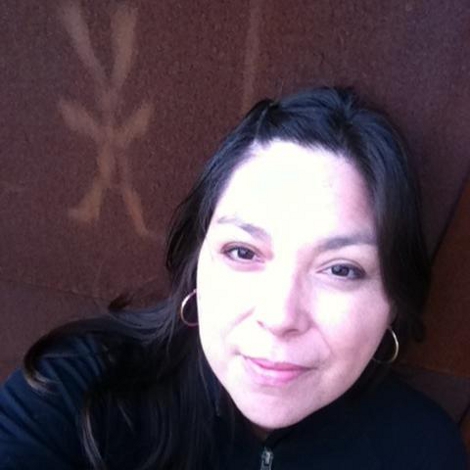 An Algoma University graduate’s research into the economic history of Anishinaabe women in the sugar bush has been recognized by a major award presented in New York City.
An Algoma University graduate’s research into the economic history of Anishinaabe women in the sugar bush has been recognized by a major award presented in New York City.
Waaseyaa’sin Christine Sy’s research project, titled Following the Trees Home, won the $20,000 Catherine Prelinger Award, presented at the 129th annual meeting of the American Historical Association (AHA).
“I'm born in Sault Ste. Marie, raised rural north of the Sault, with maternal ties and band membership with Lac Seul First Nation,” Sy told SooToday.com late Monday night.
Her paternal ancestral ties are from the Sault (where she was raised) and Belle Island, Newfoundland.
“I'm an alumnus of Algoma U's Anishinaabemowin bachelor of arts program and former employee of NORDIK Institute.”
Sy is currently a PhD candidate in indigenous studies at Trent University in Peterborough, Ontario and a pre-doctoral dissertation fellow at Michigan State University in East Lansing.
The award was presented to her on January 4 at the New York Hilton by the Coordinating Council for Women in History.
.
“Wow! … I couldn't believe it,” Sy was quoted as saying in an article posted yesterday on the Trent University website. “I didn't know if it was real or not. Once I was sure it was, I let out a zaasaakwe. That word commonly refers to a warrior call, but I use it as a shout-out to the spirits.”
The Coordinating Council for Women in History traces its history back to 1969, when it was founded to recruit women into historical research, to counter discrimination against women students and faculty, to encourage inclusion of women in meetings and committees of the AHA and to foster research in and teaching of women’s history.
The Catherine Prelinger Award recognizes scholars with nontraditional academic paths.
After finishing her undergraduate degree, Sy worked as a counselor for almost 10 years before deciding to pursue graduate studies.
Her sugar bush research “reclaims indigenous and historical knowledges using a variety of methods, weaving them into a narrative that will be utilized to illuminate women's power historically and today," she told SooToday.com.
“Grounded in priorities of promoting Anishinaabe life, her research employs Anishinaabe methods and mobilizes Anishinaabe creative works, language, oral histories, and lived experience to illuminate worldview around relationships with creation (i.e. land, animals, humans).” says a description of Sy’s work on the website of Michigan State University’s American Indian Studies program.
“Given the transnational nature of this research, outcomes will reveal both the common and unique experiences women on both sides of the international border negotiated throughout various colonial processes that displaced them from the sugar bush. This research affirms Anishinaabe women’s inherent ties to the land in the Great Lakes Region and asserts inherent rights to social economic power in both neo-colonial and contemporary Anishinaabeg economies.”